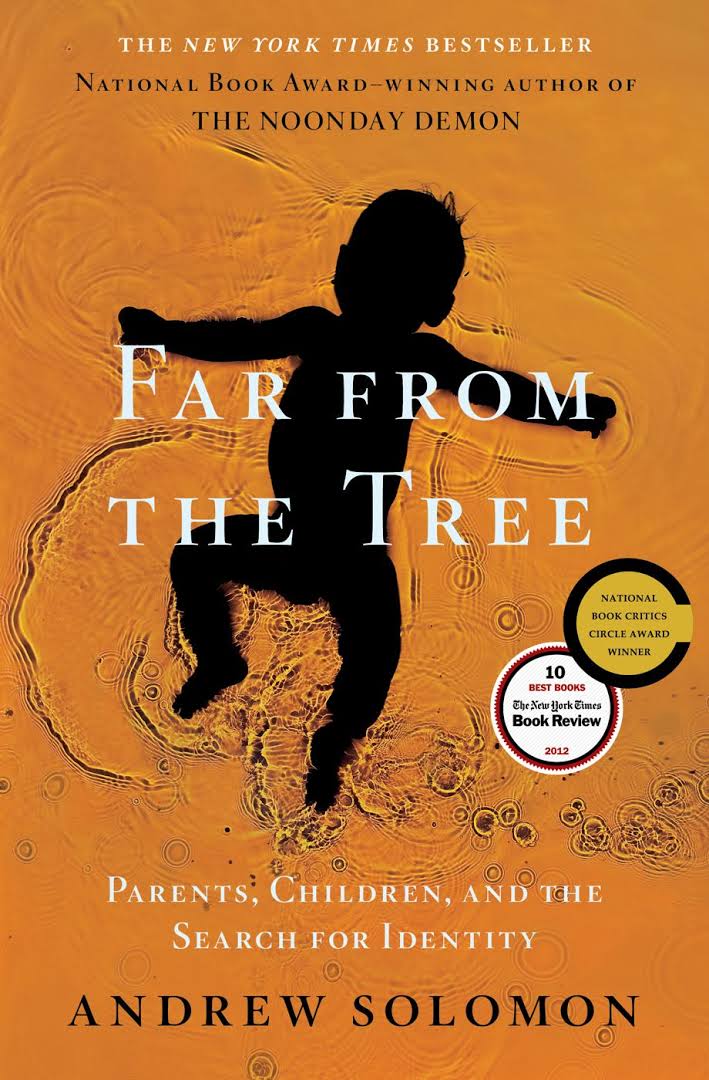The experience of reading the book ‘Far from the Tree’ is profound.

The search for the self-identity is forever the ultimate goal of an alive human being. I indeed discussed about some related issues with my friend on similar topics, e.g., if being gay is an illness or not, if color blindness is a deficiency or are we ‘normal people’ seeing ‘too much’ than we ought to see. Actually it is a quite pleasant and interesting topic when discussing some unique features not that serious in nowadays and especially when they are not occurring to you. I once wondered that if color blindness is due to the deficiency of the eyes or the deficiency of the brain and it turned out that science proves the correctness of the former explanation. However, as we know color blindness is a kind of heritable gene differences from the rest of us, how we argue a ‘correct sample’ out of all different kinds of gene mutations. Correctness is hard to define, yet we are trying to form a standardized reference out of the the great majority. We say that it is the ‘right’ one when most people possess this feature - an obvious double standard when saying that truth always rests in the hands of a few people.
I watched a video describing a new invention saying that it could give back the original color to the people who have color vision deficiency. It recorded several people who were talking about their lives as they were seeing the world in a different way from the others. Then a doctor put a pair of this special glasses for them. I was truly moved when seeing these guys tearing up and whimpering the fact that a brand new colorful world opened to them. I never doubted about the happiness of being normal again after this cure and started thinking about if I need to support my friend to buy one instantly. I never considered color blindness as a ‘horizontal identity’ - maybe in a fleeting feeling, until I started reading this book.
The book ‘Far from the Tree’ throws out a critical topic that blur the line an identity and an illness. In today’s society, people are more and more acceptable towards gay and considering it as an identity. But what about the autism, the dwarfism, the Down syndrome people, etc. Everyone is seeking the identification from the society as we are always noticing that people are slightly different from the others in all kinds of manners, i.e., appearances, characteristics, personalities. People are acceptable to the minor differences and calling it diversity. But what about those people who share some features that are so different from your experiences that you might call it deficiency? The line between normal and abnormal is as blur as finding out the number of hairlines you have when you turn to be bald.
While social acceptance is pressuring the minority, the acknowledgement from its own family seems is more precious. The book, I believe, tries to illustrate more happy-ending stories and the happy families are relatively in return more inclined to talk about themselves. I cannot imagine how my mom will act if she find out her son is somewhat different from her in some certain ways, or how I will act if in the future my child is to some degree different from myself or my expectations. The issue is even severe for our ‘one-child policy’ generation.
To predict how the society goes is intriguing. We are living in an environment that endures more and more diversities while we are becoming more and more capable of eliminating the differences. Image a future that everyone is a clone of a standard. That is not impossible.